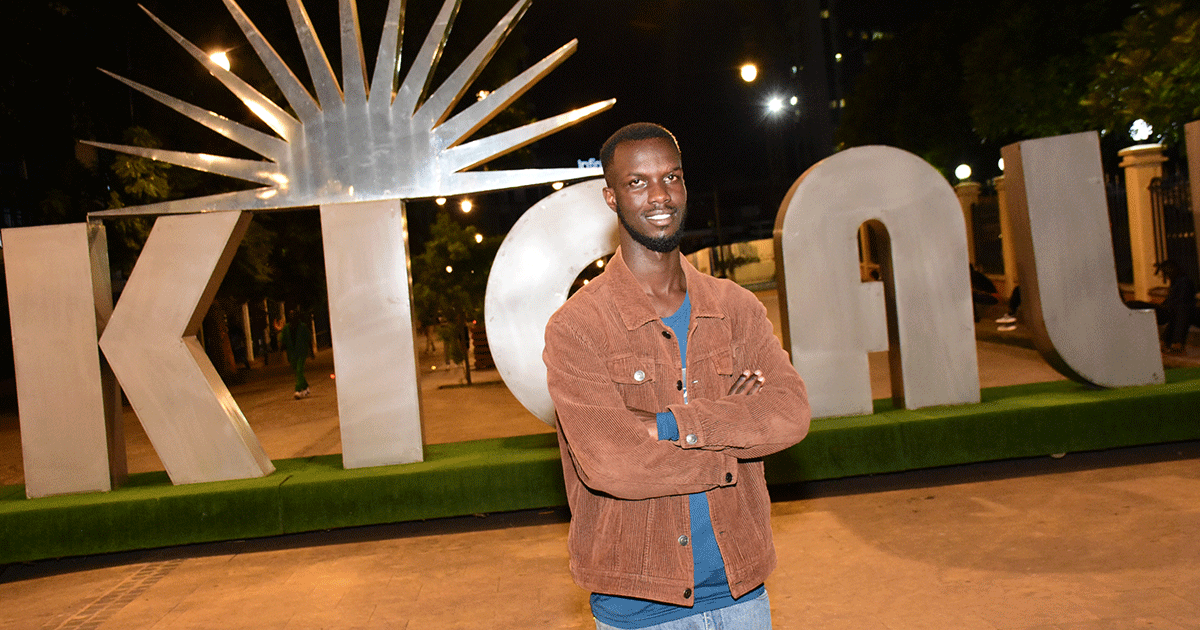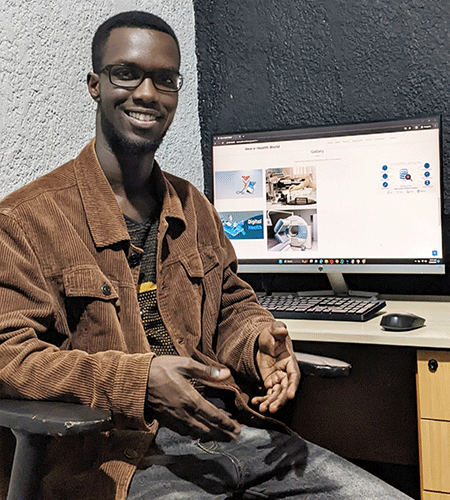Reflections from a Healthcare Entrepreneur in Rwanda

I grew up in Sub-Saharan Africa, a most vulnerable region for health.
Malaria, kwashiorkor, epidemics such as cholera and ebola, and many other global health issues were (and still remain) prevalent and potentially fatal. Through every health disaster, people worry about how the next generation is going to survive the tragedies of losing their loved ones.
In this region of developing countries, medical facilities are inadequate. Some of our friends and relatives have died due to a lack of quality healthcare services. Most of the patients in critical conditions seek unaffordable medical tourism in India, South Korea, United Arab Emirates, and Western countries. Accessing advanced medical care has always been a need for us.
The region also struggles with low-income levels and low-education status, both of which hinder the delivery of health care. That’s why I have an ambition to battle global health issues in Sub-Saharan Africa through modern technology, as it seems an effective approach to serve both underdeveloped rural and urban populations.
This is a story of my quest to address health equity in Africa, and how Babson College has provided some needed help and inspiration.
Attending a Hackathon
I live in Kigali, the bustling capital of Rwanda, and my journey in health care began with my education. After completing college studies in biomedical technology, I continued my education by studying healthcare management with a concentration in global perspectives. Those degrees equipped me with a sense of health innovations and the power of entrepreneurship.

My first entrepreneurial venture was Mouzah Designs, a social enterprise that recycled plastic advert banners into fashion materials. It was a noble endeavor, but it didn’t reflect the global health issues I wanted to help solve through digital innovations.
Then in July 2022, I participated in a health hackathon in Rwanda put on jointly by Babson’s Kerry Murphy Healey Center for Health Innovation and Entrepreneurship and the University of Global Health Equity. UGHE was founded by the late Dr. Paul Farmer, and I always have been driven by one of his quotes: “The idea that some lives matter less is the root of all that is wrong with the world.”
The hackathon, which focused on digital health innovations as part of global health equity, allowed me to interact with faculty experts. Adam Sulkowski, professor of law and sustainability at Babson, inspired me on how the entrepreneurial journey is a fundamental part of self-reliance and economic prosperity.
Wiljeana Glover, The Stephen C. and Carmella R. Kletjian Foundation Distinguished Professor of Global Healthcare Entrepreneurship at Babson, confirmed my belief that digital innovations are the best solution for global health issues, especially in developing countries, from the community level to hospital settings.
Team Spirit
Influenced by Babson and the hackathon experience, I went to work.
I conducted a market-demand analysis and healthcare-gap research to assess health issues and their relevant solutions. As a result, I went on to establish a health entrepreneurial hub, known as New e-Health World, to implement digital health innovations. That hub is now taking on two main projects.
Before I describe those two projects, however, I should mention the people who are helping me. I teamed up with my former schoolmate, Eric Munyarugamba, who was already running his own tech company, which provides IT consultancy to young Africans interested in artificial intelligence. Jacob Fohtung MBA’19, MS’20, a senior fellow at the Kerry Murphy Healey Center, also has offered mentorship and guidance.
Working with Eric and Jacob reminds of the old motto, “L’union fait la force,” which translates from the French as “unity makes strength.” Their efforts and team spirit help to make these projects possible.
A Focus on Two Projects
For our first project, we designed an AI mobile web app capable of detecting and scanning aflatoxins, mycotoxins, and xanthomonas wilt in crops of grain. Such bacterial infections are causes of liver cancer and other cancerous tissues.
Lab testing for these toxins takes a long time to provide results, and this web app will assist in speed and accuracy for early detection. Sub-Saharan Africa tends to rely heavily on agriculture and livestock, so we think this app could reduce the incidence, prevalence, and mortality rate of liver cancer by 13 percent.
“With my degree, I hope to prepare my entrepreneurial mindset and gain leadership skills to improve the innovative solutions I want to bring to my motherland.”
Alcade Fabrice Uwonkunda, who is planning to attend Babson College this fall to earn a Master of Science in Management in Entrepreneurial Leadership
For our second project, we have developed a digital platform to address a range of community health issues related to sexual and reproductive health.
Gender health inequalities, fueled by factors such as lack of health literacy and poor healthcare policies, have been an issue in Africa’s developing countries. Too many mothers die of poor prenatal care services in Sub-Saharan Africa, for example, and the incidence of sexually transmitted diseases increases every year in East Africa. With the platform, we will be able to educate women on these issues, as well as link them to gynecologists, midwives, and other healthcare specialists.
Going to Babson
The work continues on both of these projects, and we expect the app on cancer prevention to be launched first, perhaps as early as June. In the meantime, I am looking forward to coming to Babson, where I will begin earning a Master of Science in Management in Entrepreneurial Leadership degree this fall.
I believe Babson is the perfect fit for me because of its diverse community filled with entrepreneurial faculty experts and visionary student leaders. With my degree, I hope to prepare my entrepreneurial mindset and gain leadership skills to improve the innovative solutions I want to bring to my motherland.
Posted in Community, Entrepreneurial Leadership, Outcomes





